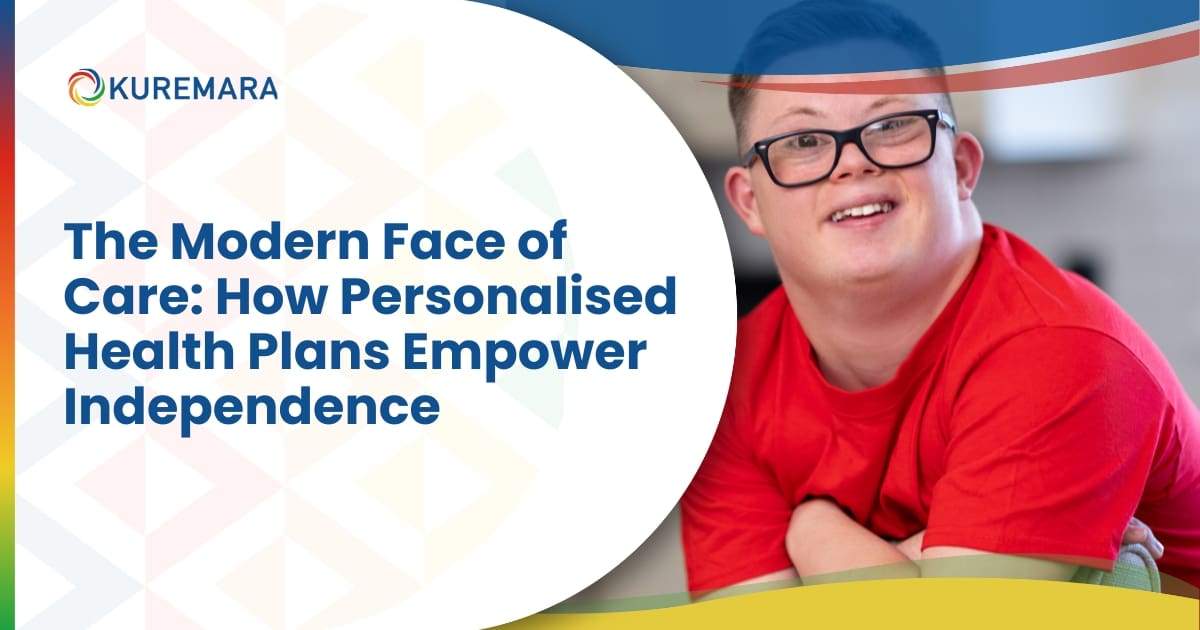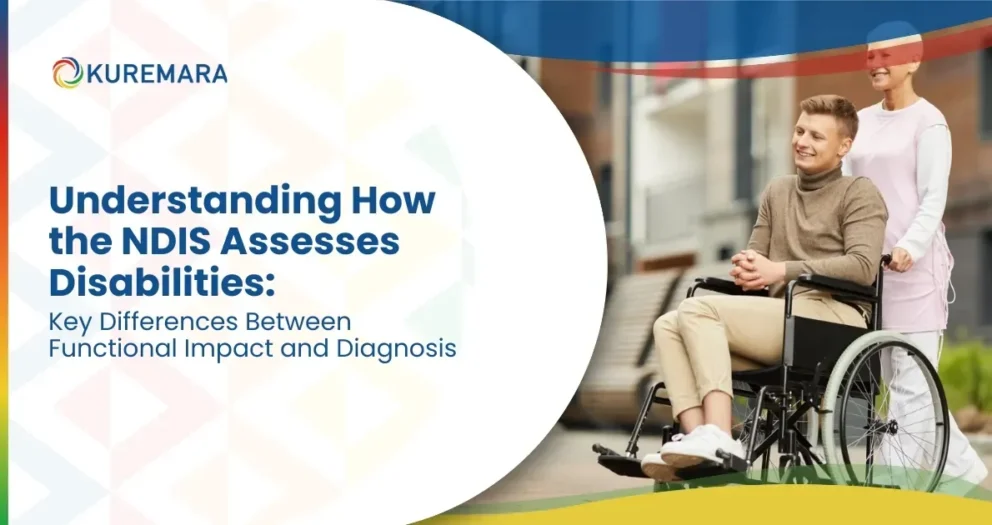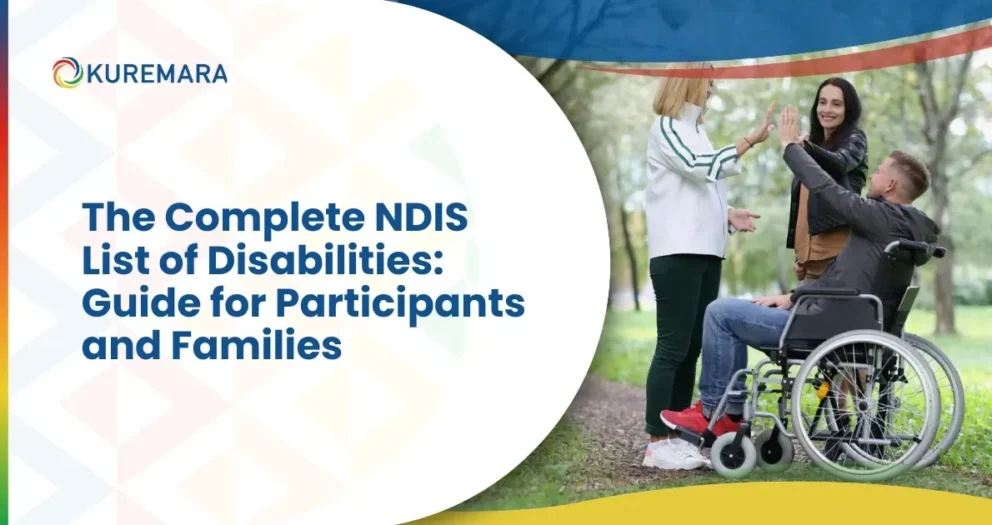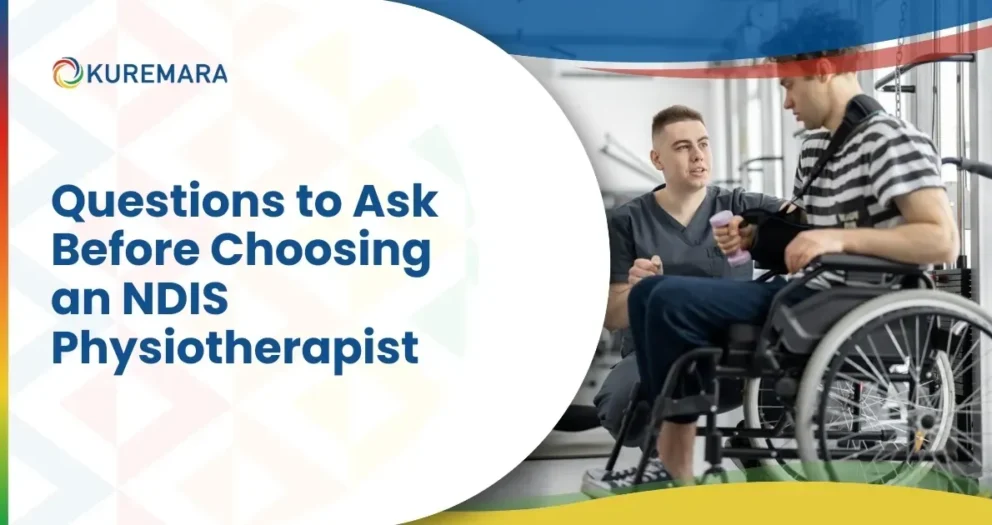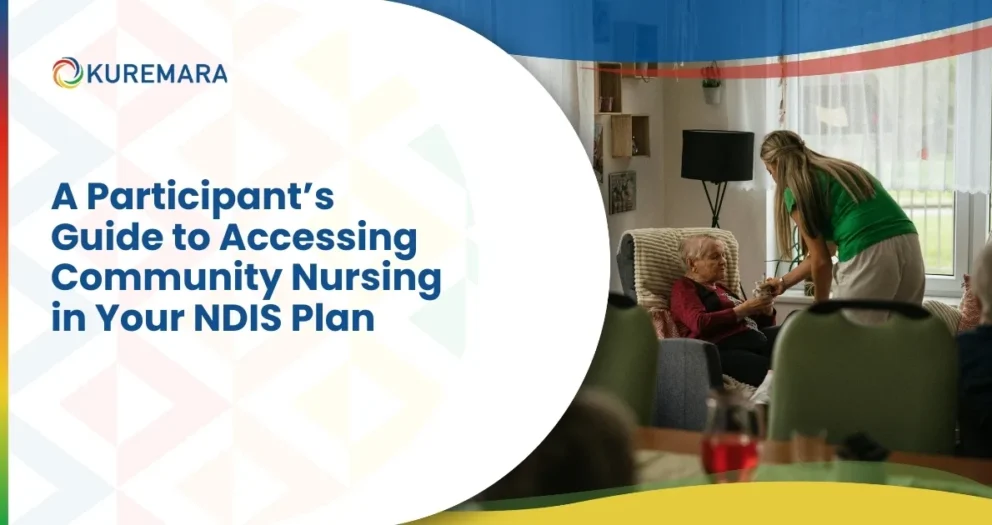Imagine this: Sarah, a proud young adult living with a physical disability, sat down with her support coordinator and was asked: “What does a good day look like for you?” Instead of ticking off a fixed checklist, she described joining a local art class, managing some errands with minimal help, and spending evenings with friends. That conversation became the catalyst for a truly personalised health care journey, one that centred on her goals, preferences and independence.
Today’s support landscape is shifting. Gone are the days when everyone receives a similar ‘one-size‐fits‐all’ package of support hours and tasks. Instead, the modern face of care is individualised, flexible, purpose-driven planning. At Kuremara – an NDIS-registered provider delivering disability support services across Australia, we embrace this transformation. In this article, we’ll explore what a personalised care plan really means in the disability sector, why it matters under the NDIS, how the plan is developed and delivered, how Kuremara implements these for participants, and practical tips to make the most of this approach.
What Is a Personalised Health Plan?
A personalised health plan goes beyond scheduling support hours or assigning a carer. It is a holistic document and roadmap, tailored to the individual’s life journey: their abilities, aspirations, environment, relationships, routines, and dreams. In a disability support context, this means the individual is placed at the centre; not just as a recipient of services, but as the architect of their support story.
Contrast this with a traditional approach where all participants receive the same set of predefined tasks (e.g., “assist with personal care”, “transport to appointments”) regardless of their goals or strengths. A truly personalised plan asks: what does this person want to achieve, what support will help them do that, and how can we adapt as life changes?
For participants under the NDIS, a personalised NDIS care plan integrates these principles: aligning support with the participant’s NDIS goals, then matching services, providers and schedules accordingly. As noted in broader care management research, personalised plans lead to better engagement, increased self-management, and improved outcomes.
If you’re looking to understand the step-by-step process of developing a tailored plan under the NDIS, our guide on how to create a personalised NDIS plan explains how to turn your goals and preferences into an actionable roadmap for independence.
Why the Shift Towards Personalised Care Matters
Several key forces drive this evolution:
- Choice & control: Under the NDIS framework, participants are increasingly empowered to shape their support rather than passively receive them.
- Better outcomes: Evidence shows that when participants are actively involved in planning, supports are more meaningful – leading to greater independence, less wasted resources, and fewer crisis events.
- Cost-effectiveness: Tailoring supports to the individual means fewer services that don’t match their needs, supporting the sustainability of the system.
- Social inclusion & wellbeing: Personalised plans consider social, emotional, and community dimensions, not just physical tasks, and that makes a real difference to quality of life.
- Dynamic lives: People’s circumstances change – housing, health, goals, preferences. A personalised approach is inherently more flexible.
In the Australian context, this means the sector is moving from ‘doing for’ to ‘working with’. A personalised NDIS care approach ensures services don’t just happen to a person, they happen with the person, supporting independence and dignity.
Key Elements of an Effective Personalised Care Plan
Here’s what distinguishes a strong personalised care plan:
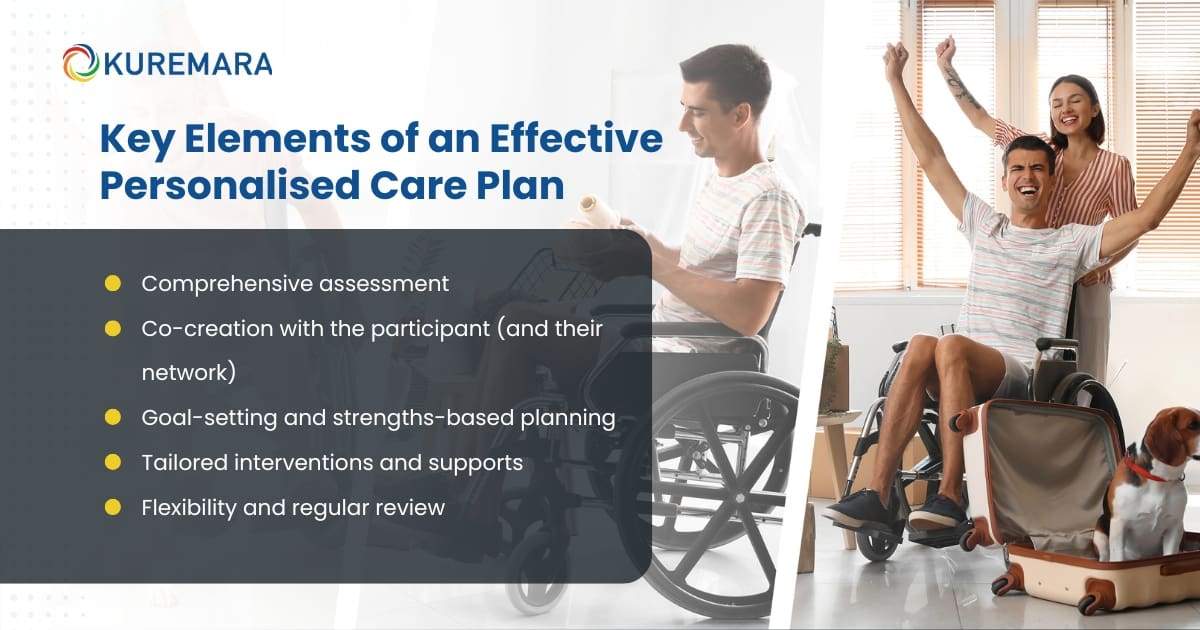
1. Comprehensive assessment
It should look beyond physical support needs to include emotional well-being, social connections, environment, adaptive technologies, and personal aspirations.
2. Co-creation with the participant (and their network)
The person with disability, along with their family, carers, and allied professionals, should be actively involved in designing the plan. This ensures it truly reflects their life story and goals.
3. Goal-setting and strengths-based planning
Instead of only focusing on deficits or tasks (“you need help with mobility”), the plan should identify what the participant can do, what they want to achieve (e.g., “attend art class weekly”), and build supports to enable it.
4. Tailored interventions and supports
The supports selected should match the person’s unique needs and lifestyle: whether it’s community access, transport, specialist nursing, in-home support, skill development, or technology assistance.
5. Flexibility and regular review
A plan must adapt: as life changes (health, living arrangements, goals) the plan evolves. Regular check-ins and reviews keep the plan relevant.
6. Holistic approach
It should not be only clinical or physical. Skills for independence, social inclusion, emotional support, environment modifications, and community participation; they all matter.
7. Clear documentation and coordination
The plan should be clearly documented, understandable, and aligned with all providers and supports. Coordination prevents overlap, gaps, or confusion.
How Kuremara Delivers Personalised Health Plans for NDIS Participants
At Kuremara, we believe that modern disability support means partnering with participants to co-design their path to independence. Here’s how we bring personalised health plans to life:
Step 1: Initial Intake & Discovery
When a participant joins us, we start by listening: what are their life story, their routines, their dreams, the strengths they bring, the environments they live in. Rather than rushing to match them with a service, we ask: what does this person want their life to look like?
Step 2: Co-Designing the Plan
Working together with the participant (and where relevant family/carers and allied professionals), we draft a personalised NDIS care plan: defining goals (short-, medium-, long-term), choosing supports, selecting staff/contracts, setting review dates, and all aligned to the participant’s NDIS plan.
Step 3: Implementation of Supports
Once the plan is set, Kuremara connects the participant with suitable services: whether it’s supported independent living (SIL), in-home support, community access, transport, nursing each element tailored to the individual’s preferences and life context.
Step 4: Ongoing Review & Adaptation
Life happens. Needs change. We schedule regular check-ins, monitor progress, adjust supports, and refresh the plan as required. That ensures the plan remains dynamic and effective.
Step 5: Quality & Outcome Tracking
Using our internal systems and feedback from participants, we monitor outcomes, not just hours of support delivered, but progress against goals, participant satisfaction, and increased independence. This continuous improvement supports better care, better outcomes.
By following this person-first, agile approach, Kuremara ensures that personalised care is not just a buzz-word, it’s lived in every day.
Real-Life Benefits for Participants and Families
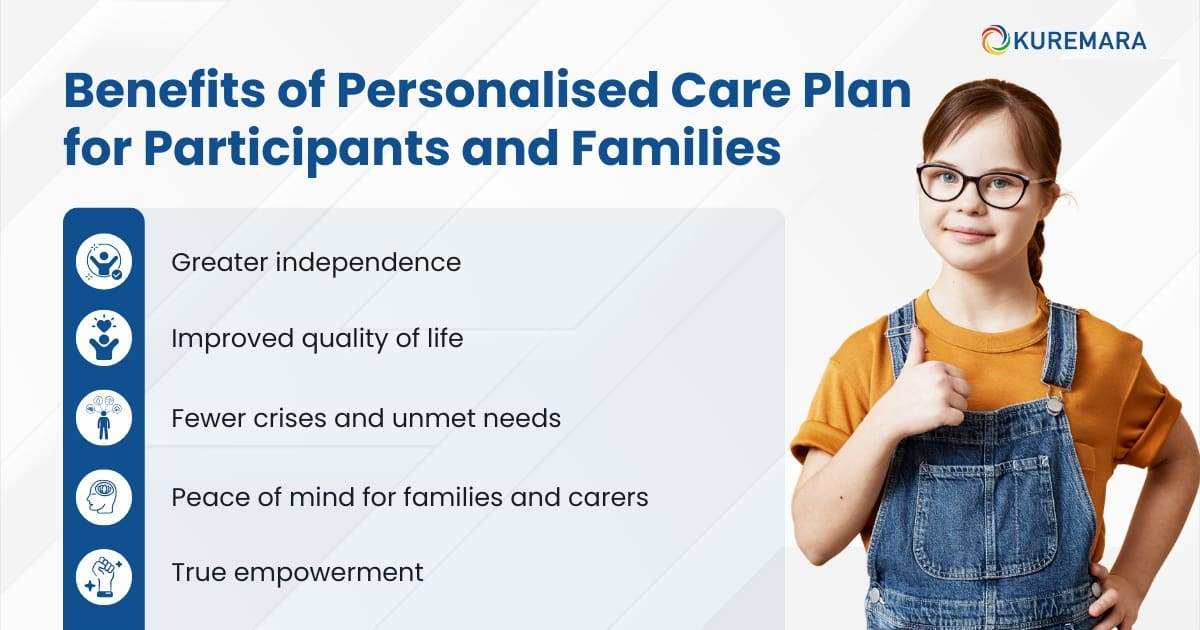
The impact of a personalised plan is significant. Here’s what participants and families commonly experience:
a. Greater independence
When the plan reflects what the person truly wants to do, rather than what someone else assumed they gain control. For example, a participant might move from needing full transport support to self-organising travel with slight assistance.
b. Improved quality of life
By focusing on meaningful activities, community participation, social connections, skill building rather than just physical tasks, participants feel more engaged, valued and connected.
c. Fewer crises and unmet needs
Because the plan is proactive and tailored, unexpected declines or gaps can be anticipated and managed; leading to reduced hospital visits or emergency interventions.
d. Peace of mind for families and carers
Knowing that a clear, documented plan exists, coordinated across supports and reviewed regularly, gives families confidence that their loved one’s support is truly personalised.
e. True empowerment
Participants are active agents in their own support, not passive recipients. This fosters self-esteem, confidence, and the ability to shape one’s own life.
Challenges & How to Overcome Them
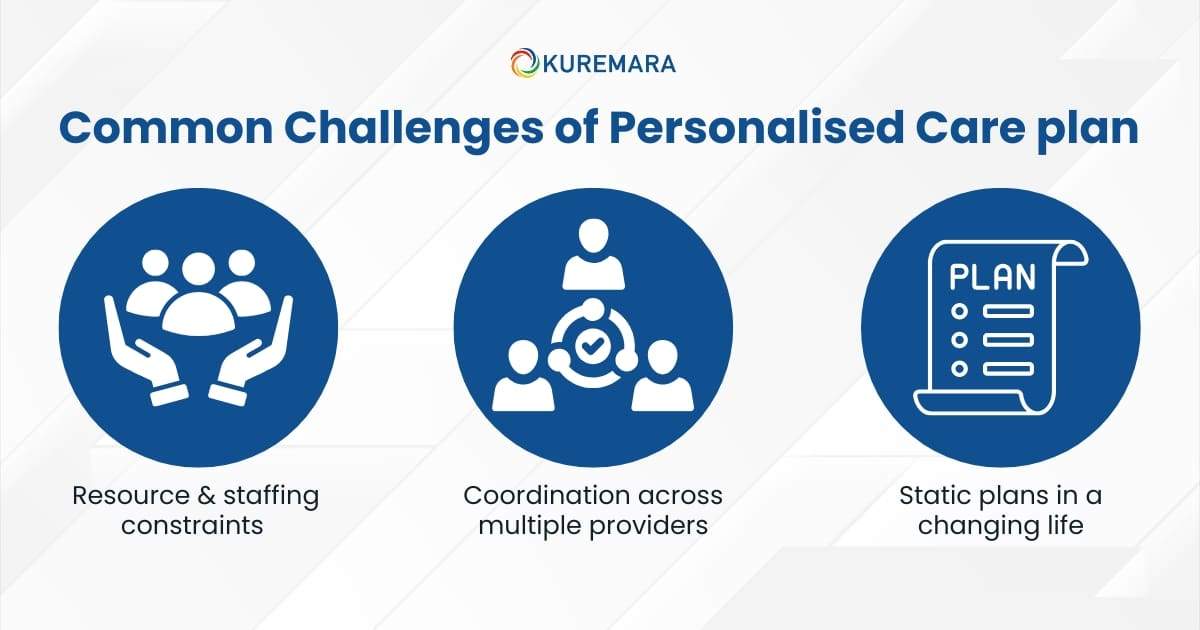
While the benefits of a personalised plan are clear, there are common challenges, and Kuremara addresses them head-on.
Challenge: Resource & staffing constraints
High staff turnover or mismatches in support can undermine a tailored plan.
Kuremara’s approach: Dedicated care-coordinators, rigorous staff recruitment and training, emphasis on matching staff to participant preferences (personality, interests, communication style).
Challenge: Coordination across multiple providers
Participants often have several providers which can lead to fragmentation.
Kuremara’s approach: We use robust documentation, clear support-coordination practices, and ensure communication between all services involved including allied health, nursing, community support, etc.
Challenge: Static plans in a changing life
If a plan remains unchanged while the person’s life evolves, it becomes irrelevant.
Kuremara’s approach: We schedule regular reviews (quarterly or as needed), actively monitor changes (health, living arrangements, goals), and adjust the plan accordingly.
Tips for participants & families
-
- Come prepared for planning sessions: think about your life goals, not just your support needs.
-
- Be honest about your preferences, strengths, routines, and living environment.
-
- Ask for flexibility: if something isn’t working, speak up and review the plan.
-
- Keep your own copy of the plan and track what’s working (or not).
-
- Look beyond physical support: think about social connection, community engagement, and independent living skills.
Practical Tips for Participants to Make the Most of Their Personalised NDIS Care Plan
-
- Know your goals – Take time to visualise “what does my ideal day look like?” rather than “what supports do I need?”
-
- Be open and honest – When you share your preferences, routines, strengths and challenges, the plan is richer and more relevant.
-
- Choose supports that reflect you – Whether it’s the type of staff, locations, timing, or style of delivery, the support should match your lifestyle and personality.
-
- Schedule regular reviews – Set reminders. Check: “Is this still working? Do I still care about these goals?” Adjust as needed.
-
- Advocate for flexibility – Life changes. Don’t wait until the plan is outdated; request amendments when necessary.
-
- Keep documentation accessible – Store your plan, progress notes, changes so you can refer back and ensure everyone is aligned.
-
- Connect with community – A truly personalised plan includes social support, community participation, not just clinical tasks.
-
- Work with your provider – At Kuremara, we are your partner, not just a service provider. Stay in communication, speak up, and ask questions.
Looking Ahead: The Future of Personalised Health Care in the NDIS Sector
As the disability-support sector matures, we anticipate several evolving trends:
-
- Digital tools & tele-supports: Increased use of apps, dashboards, remote monitoring to help tailor support, track outcomes and enable adaptive plans.
-
- Data-driven insights: Providers leveraging analytics to recognise patterns, adjust supports proactively and refine person-centred care.
-
- Consumer-driven models: Greater participant autonomy, self-management and peer-based support becoming mainstream.
-
- Preventative & wellness focus: Instead of reactive support, an emphasis on building skills, promoting independence, community integration, and overall wellbeing.
-
- Integration of support across life domains: Disability, health, social, employment supports coming together into unified personalised plans.
At Kuremara, we are committed to staying at the forefront of these developments, constantly improving our systems, training our staff, listening to participants, and innovating how we deliver tailored disability support services in Australia.
Imagine a future where every participant wakes up, reads their plan, and says: “Yes, this is my plan, and I’m living it.” That’s the vision of true personalised care in the modern era.
Conclusion & Call to Action
The modern face of care is no longer about hours of support delivered, it’s about meaning, independence, aspiration, and partnership. With a personalised care plan, participants under the NDIS can move from simply receiving support to actively shaping their life journey. At Kuremara, we specialise in delivering that transformation through thoughtful, tailored, responsive support and by placing your goals, preferences and independence at the heart.
If you or a loved one is ready to explore how a truly personalised NDIS care plan could unlock independence and meaning, let’s start a conversation. Contact Kuremara today and take the first step towards a plan that reflects you.
 care@kuremara.com.au
care@kuremara.com.au
